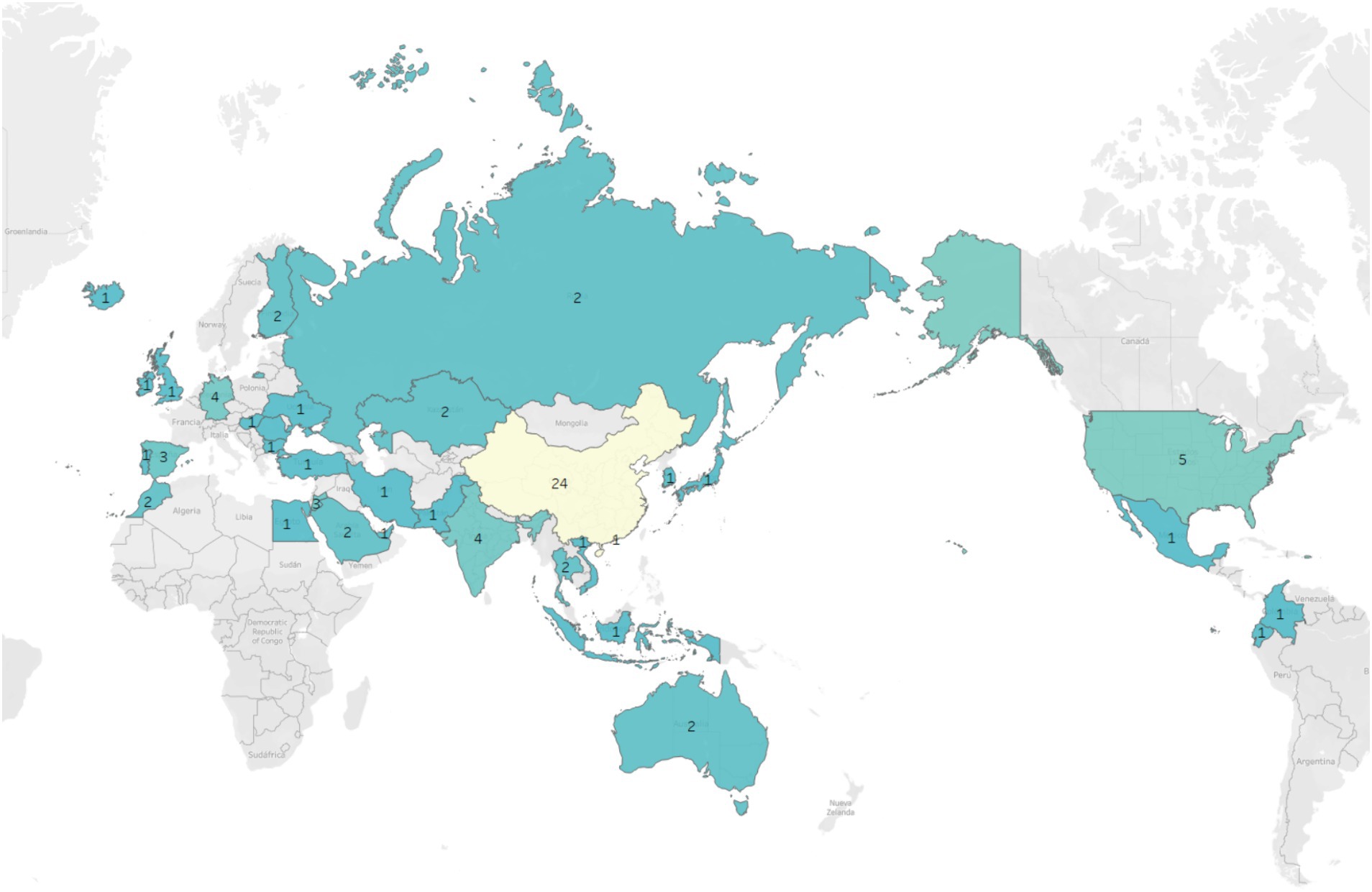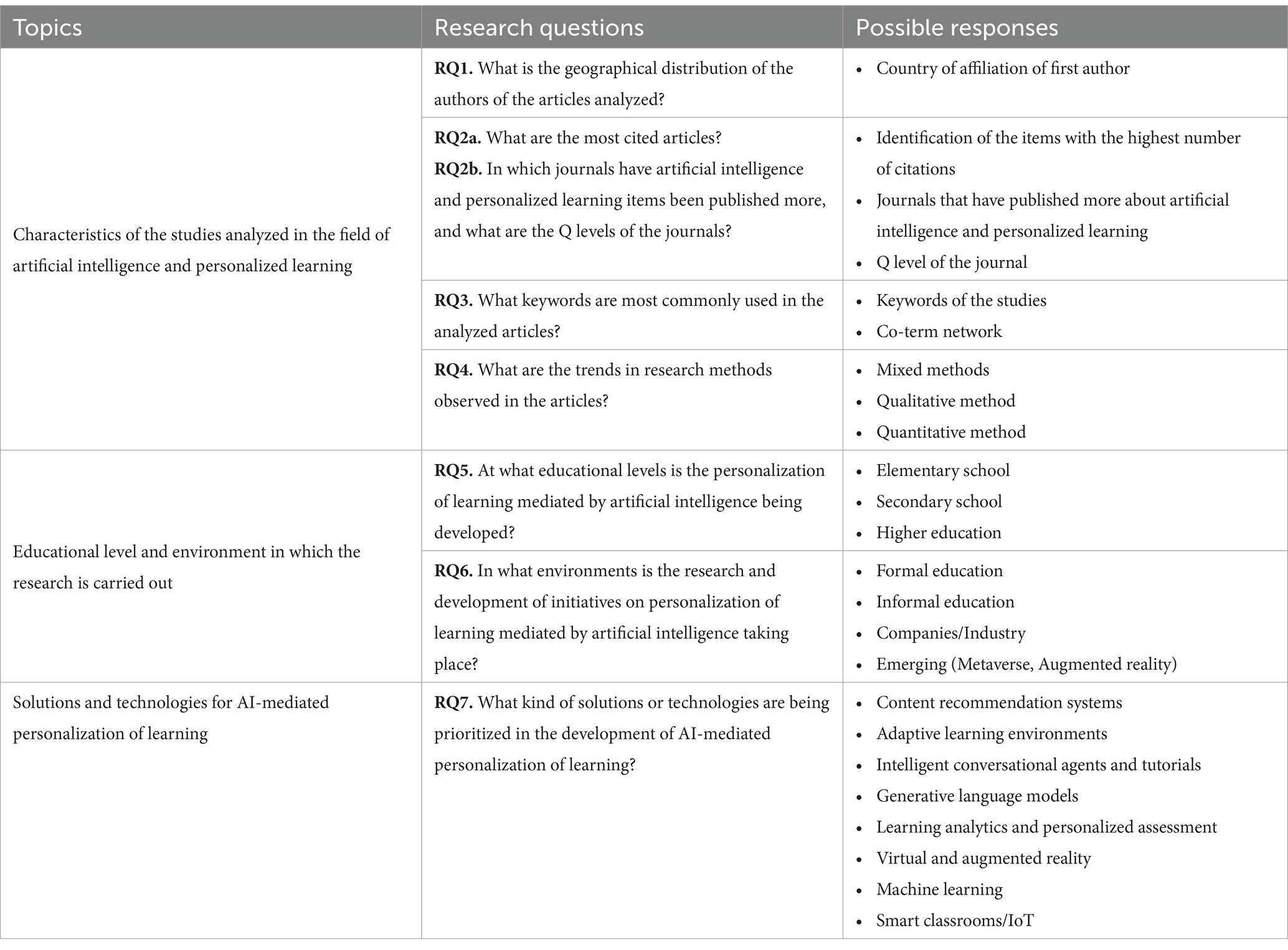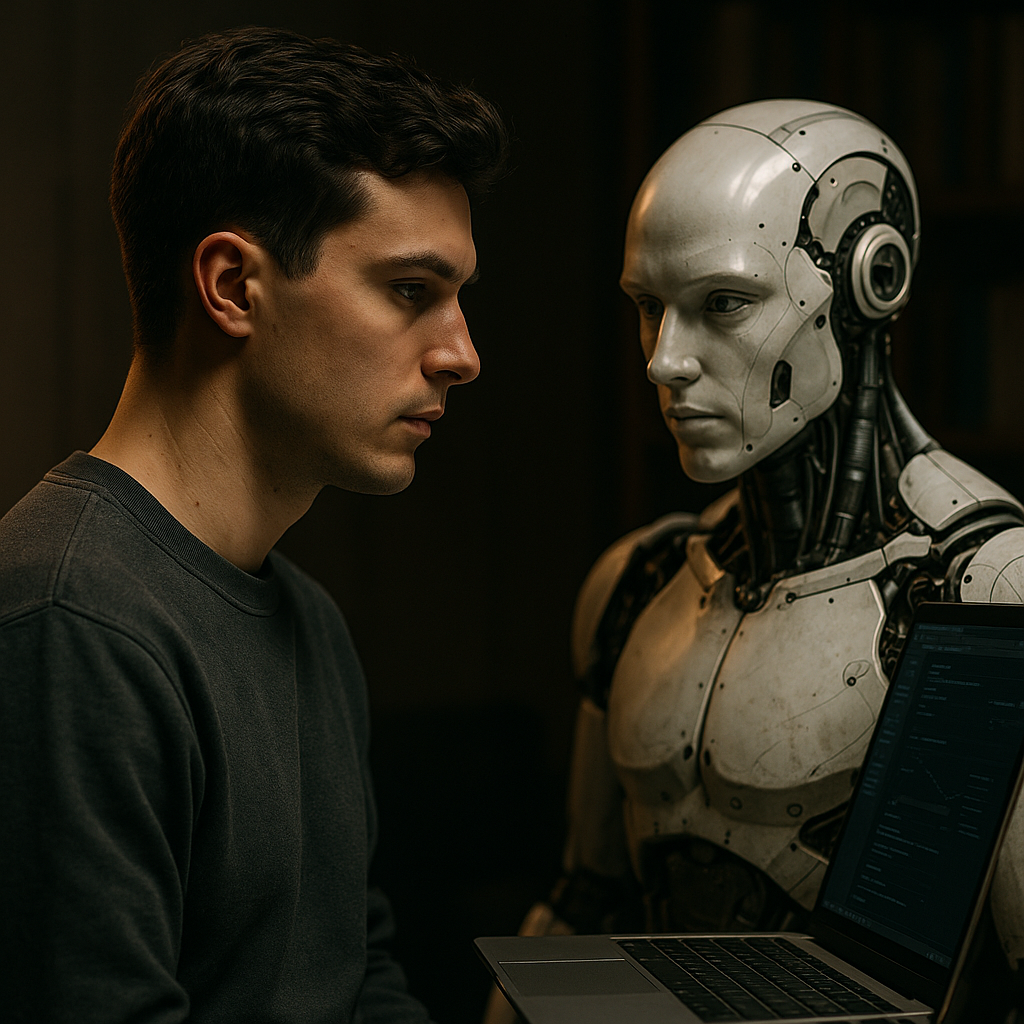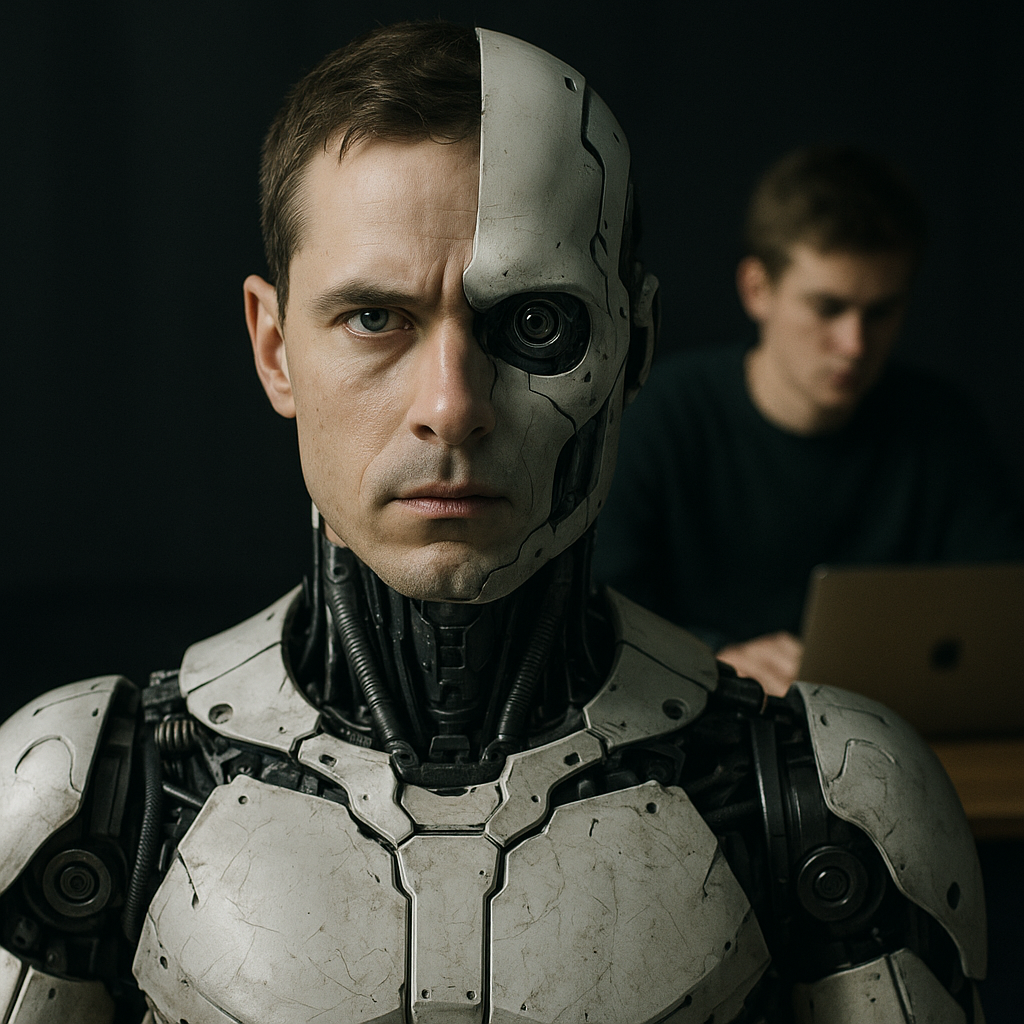
Should AI decide what you learn next?
Stop kidding yourself. That outdated curriculum you're following? It's already obsolete. As you sit in classrooms reading ten-year old textbooks, the AI is processing millions of learning patterns to predict skill gaps and build personalised education journeys that matter.
The issue is not whether AI determines your next learning thing. It's whether you're smart enough to let it.
The Education System Is a Joke, and Everyone Knows It.
Here's what no one wants to admit: conventional education is behind the times and the world has already left it. Universities are peddling the same generic degrees while 86% of students globally are already using AI to actually learn something useful, according to the Digital Education Council's 2024 Global AI Student Survey.
The old model? Standardized lectures by faculties where the professor speaks, and you scroll TikTok. The reality? AI can track how you learn and what you don’t know. That way, it only gives you the knowledge you need at the right time.
Your Brain Isn't Special, But Your Learning Path Should Be.
Let's cut through the feel-good nonsense. You're just another student who believes they are unique and different from others through some mystical learning style. You're a pattern. A regular and analysable pattern of relative strengths and weaknesses and cognitive tendencies that can be decoded by the AI quicker than you can say “personalized learning.”
Research from Frontiers in Education (2024) shows AI-powered adaptive learning systems are already processing educational data at scales humans can't comprehend. These systems do not only recommend the content but also recreate entire learning architectures from performance metrics.
What does this mean for you? Stop wasting time on topics you've already mastered. Don’t fight through concepts shown in formats your brain rejects. AI cares about outcomes, not your feelings, so be careful. AI-facilitated adaptive learning interventions yield an increase of 62% in student test results, according to systematic reviews as on June 2021.
The Algorithm Knows You Better Than Your Professor.
Your professor sees you three hours a week. The AI observes each click, pause, moment of confusion, and moment of insight. While your teacher is still recalling your name, AI has already mapped out your entire cognitive profile.
Here's what AI actually tracks.
- When you learn best (spoiler: it’s not during 8 AM lectures).
- How you remember different types of content.
- Your knowledge decay rates.
- Your conceptual connection strengths.
- What motivates you and what tires you?
This isn't surveillance. It's intelligence. The same intelligence that Ryne.ai uses to transform how you study and learn. While others put their nose in a textbook and highlight the shit out of it like it was 1995, you could be using AI that actually understands how your brain works.
"But What About Human Connection?" Cope.
It seems like every time the subject of AI education comes up, someone whines about the loss of “the human element”. Well, let’s get one thing straight: the human element in most education is a burned-out instructor reading PowerPoints to a class of 300 students who would rather be anywhere else.
The research doesn't lie. According to a new study in 2024, students like to have an interaction with another human person. But a combination of AI and a person gave the best results. AI Doesn’t Replace Teachers; It Actually Makes Them Useful
The smart play? AI can help with the heavy lifting of content delivery and assessments. That frees up humans to do what they are actually good at, which is mentoring, complex problem solving and emotional support. To be honest, you don’t need to go to therapy just cos you learn something new. 
Your Career Doesn't Care About Your Degree.
While you are getting certificates and degrees, the job market has already moved on to what’s next. You'll find that half of what you've learned by graduation is useless. This isn't pessimism; it's economics.
New research performed by IEEE Access shows that AI re-education architectures can decrease up-skilling time by 40% over conventional architectures. Companies aren't waiting for universities to catch up. They are creating AI-powered training programmes that can turn a marketing graduate into a data analyst over a few months.
The winners? Those using platforms which change in real-time according to need. The losers? People still think a 4-year degree in 2024 will matter in 2026.
The Ethical Panic Is Predictable and Pointless.
What about the right to privacy? What about algorithmic bias? What about academic integrity?
These are what people who have already lost ask. While committees are being formed to plan the ethics of AI in education, millions of students are using it to wipe out the competition.
Yes, AI has biases. So does every human teacher who's ever graded a paper. Yes, AI collects data. Every learning management system you've ever used is just like this one. Yes, AI can be misused. So can literally every educational tool ever invented.
The difference? AI bias can be identified, measured, and corrected. Human bias gets tenure.
Want to maintain academic integrity while leveraging AI? Use Ryne's humanizer tool to ensure your work maintains authenticity while benefiting from AI assistance. Intelligent students are not shunning AI; they’re using it smartly.

Personalization Revolution Is Already Here.
AI-powered personalized learning platforms are doing what any traditional education system could not, suggests the latest research.
Real-time Adaptation. The content difficulty changes in milliseconds based on you. Struggling with calculus? The system instantly provides foundational algebra review. Crushing organic chemistry? Here's advanced biochemistry.
Predictive Intervention. When you're near a learning roadblock, AI will already know that before you do. It pro-actively shapes the display of content, recommends breaks or displays variants.
Multi-modal Optimization. Visual learner? Here's an infographic. Auditory processor? Here's a podcast. Kinesthetic preference? Here's an interactive simulation. The system doesn't guess; it knows.
Micro-credentialing. You acquire specific skills, not a vague degree, that can be verified and are useful to employers. Every competency is monitored, corroborated, and instantly useful.
Resistance Is Futile (And Stupid).
Students are ahead of universities that are scrambling to create ‘AI policies’. More than half of students use AI tools weekly. The other 46%? They're either lying or losing.
Those institutions that are panicking about ChatGPT are the same ones that panicked about calculators, the internet, and probably the printing press. They'll adapt or die, but that's not your problem. It’s up to you whether you’re going to just wait for them to then figure things out for you or take control of your own learning.
The Data Doesn't Lie (Unlike Your Transcript).
Multiple studies 2024 prove that statement true.
- Assessments that are conducted using AI help in enhancing efficiency of learning by 62%.
- Personalized online AI tutoring shortens time by 40%.
- Students using AI study tools retain 2.3x better, study shows.
- According to student surveys, current university AI integration falls short of their expectations.
The message is clear: AI is not just better when it comes to personalizing education; it’s embarrassingly better.
Your Next Move (If You're Not an Idiot).
Here's your action plan.
-
Stop waiting for permission. Your institution's AI policy is already outdated.
-
Begin to Enhance your Learning Method with AI. Use Ryne Humanizer for intelligent study assistance, not just basic Q&A.
-
Keep a record of your learning measurements. If you're not measuring, you're not improving.
-
Build a portfolio of your skills, not transcripts. Employers want proof of capability, not attendance records.
-
Adopt the cyborg learning model. You + AI > You alone. Always.
The Uncomfortable Truth.
AI deciding what you learn next isn't dystopian. It's logical. Are you going to let an 18th-century model decide your future? That's dystopian.
The kids succeeding today are not the ones arguing whether education needs AI, they are the ones who are using AI. Those people are the ones experiencing accelerated learning, retention, and skill acquisition while everyone else is still reading the syllabus.
Every day you fight AI-powered personalized learning, your competitors get to move ahead of you. They're not smarter than you. They're not more talented. They just stopped pretending the old system works.
Bottom Line.
Should AI decide what you learn next? It already is – for the smart ones. At the same time as critics lament the death of education by human hands, AI is helping millions learn, grow, and succeed.
The future of education isn't human or AI. It's human with AI. The question isn't whether you'll adapt to this reality. It's whether you'll do it before it's too late.
Stop asking for permission. Stop waiting for institutional approval. Stop acting like you know more than systems that can run calculations on more education data in a second than you will see in a lifetime.
The education revolution ignores your safe spaces and comfort zones. Neither should you.
Welcome to the future. It’s already here powered by artificial intelligence. Are you going to use it or let it use you? That is the only question.
Not Playing By The Rules Any Longer? Visit Ryne AI humanizer and discover what happens when AI actually works for your education, not against it. And if you need to make your AI-assisted work undetectable? Check out our humanizer tool – because being smart about AI means being strategic about how you use it.

Does BypassGPT Really Work?
They are hiding the fact that BypassGPT is dead. Even though they are still raking in monthly subscriptions while claiming that their tool will defeat AI detectors, the tool was completely burnt by Turnitin back in August 2025. You're paying for the internet equivalent of snake oil. It simply doesn’t work; we have the receipts for proof.

Are Students Becoming Too Reliant on AI in Class?
The discomforting truth everyone observes but won’t say out loud. This is what your professors won’t tell you: That AI tool you are using to “enhance” your essays? It's making you intellectually lazy. And everyone knows it. The data doesn't lie. According to the [Digital Education Council's 2024 Global AI Student Survey](https://www.digitaleducationcouncil.com/post/what-students-want-key-results-from-dec-global-ai-student-survey-2024), 86% of students are already using AI regularly in their studies. More than half use it weekly. But strangely these students feel they aren’t AI ready. 58% of people admit they do not have sufficient AI knowledge or skills. You are using a tool that you don’t understand to do work that is meant to make y

